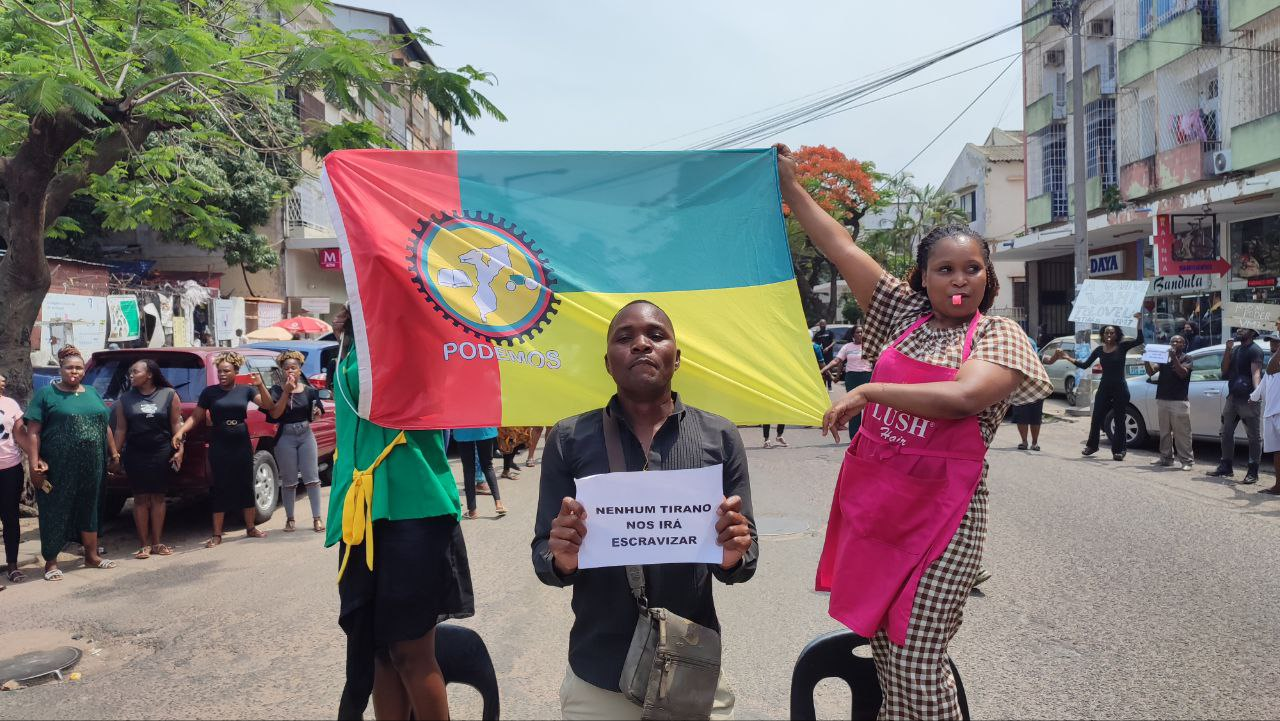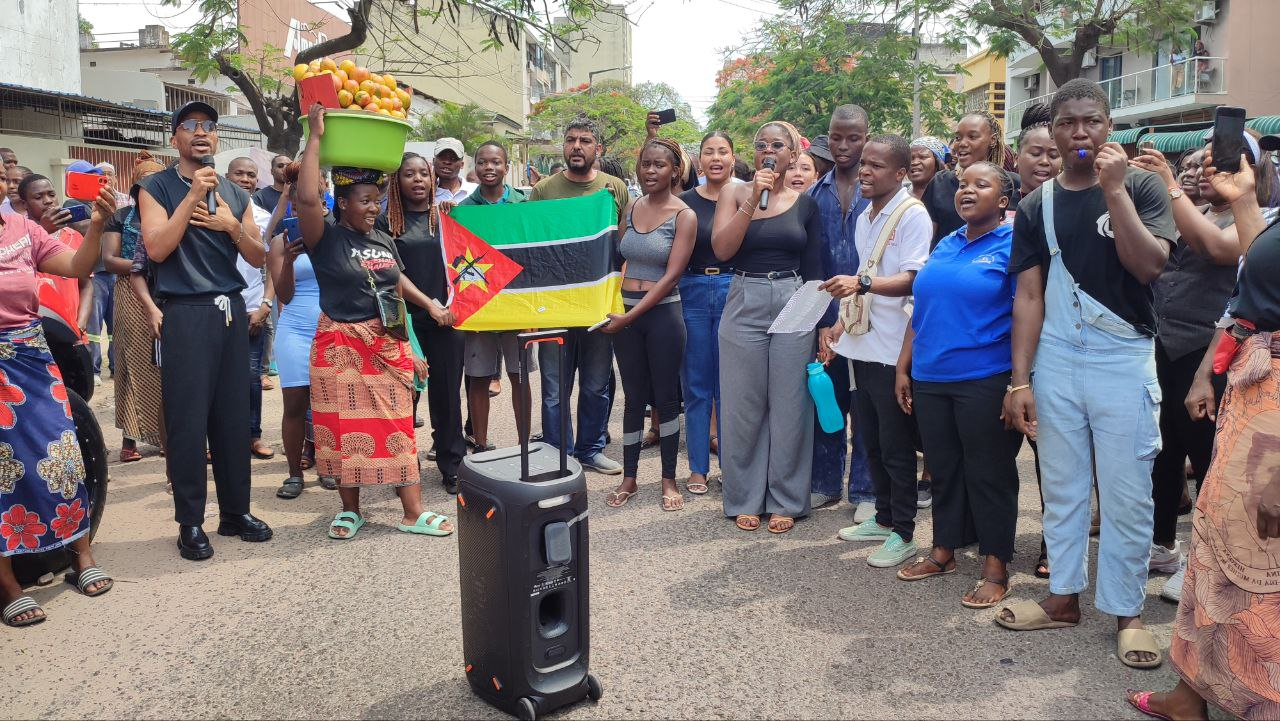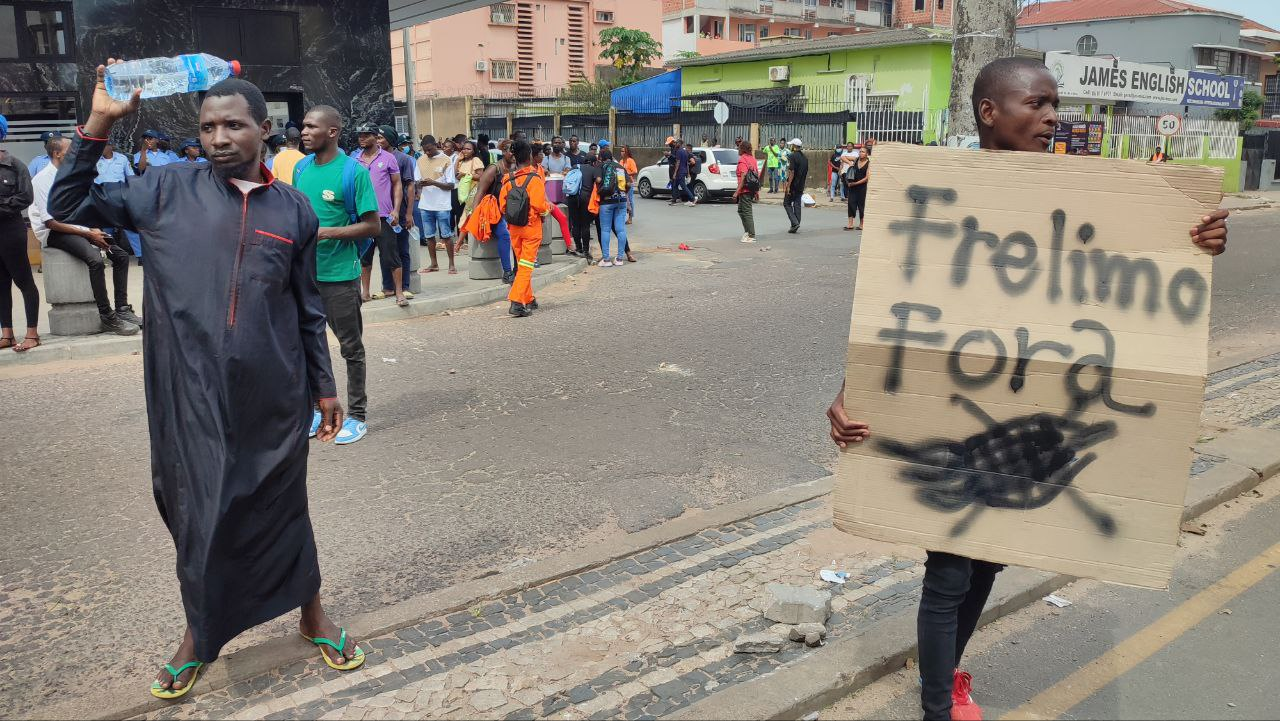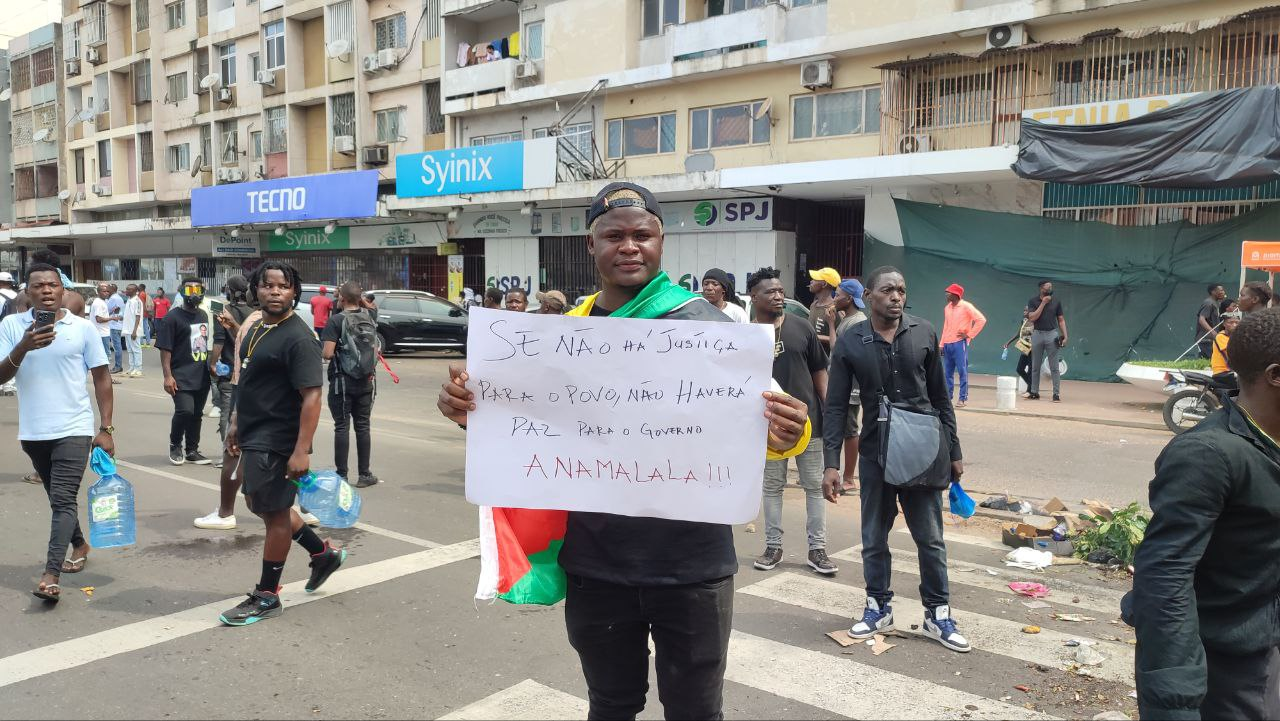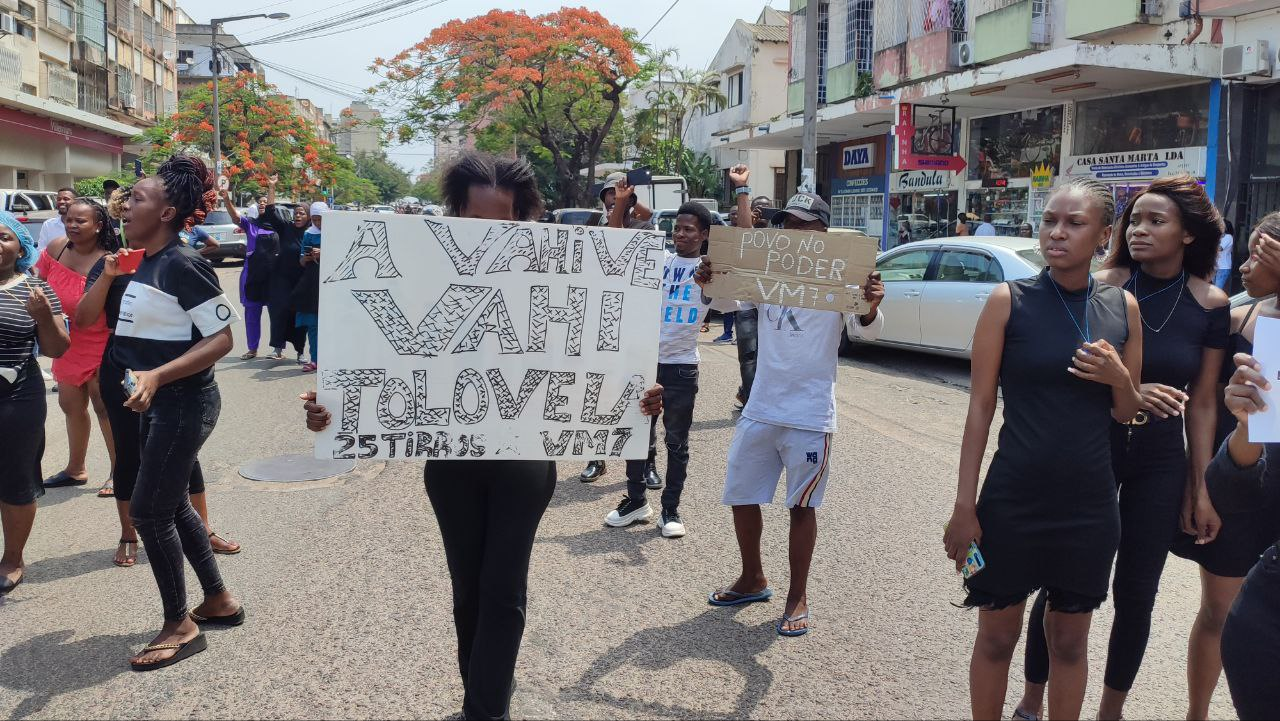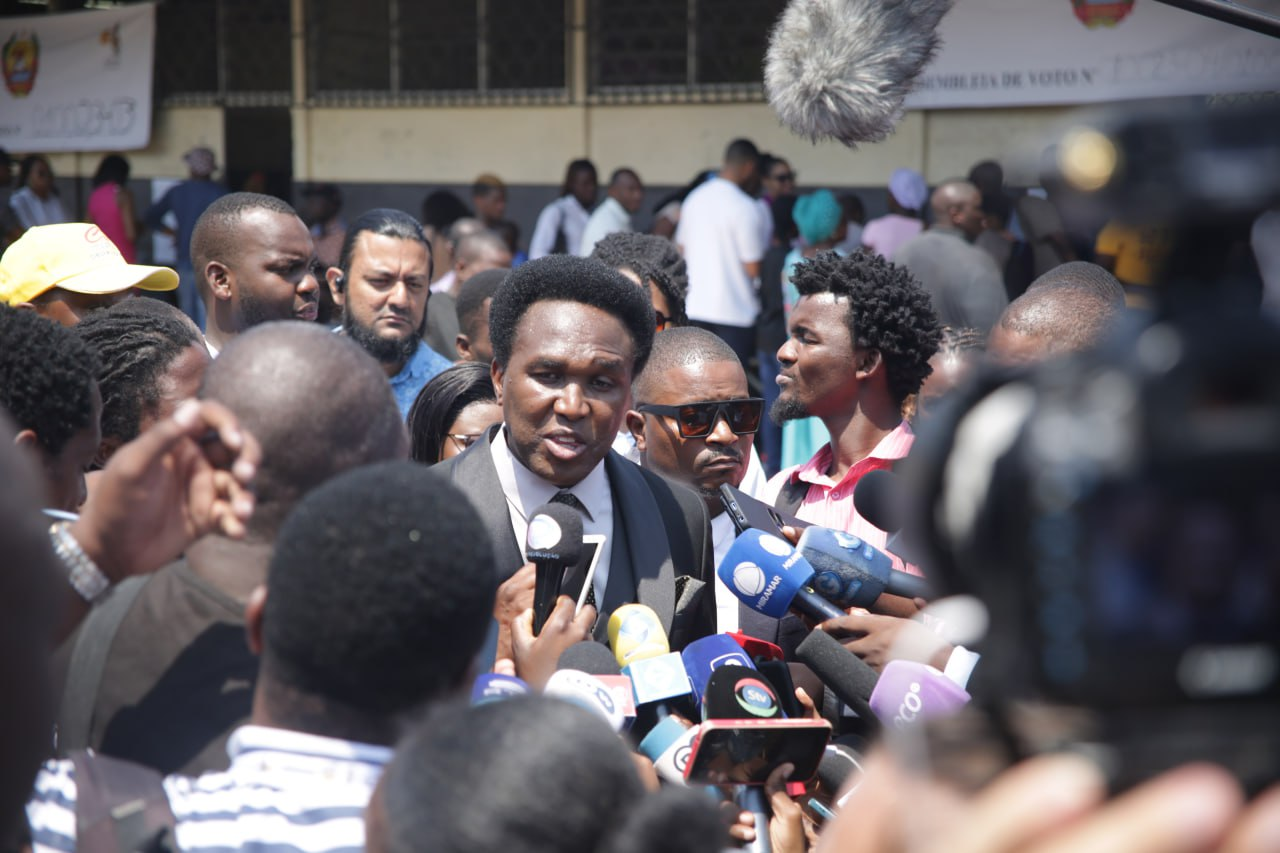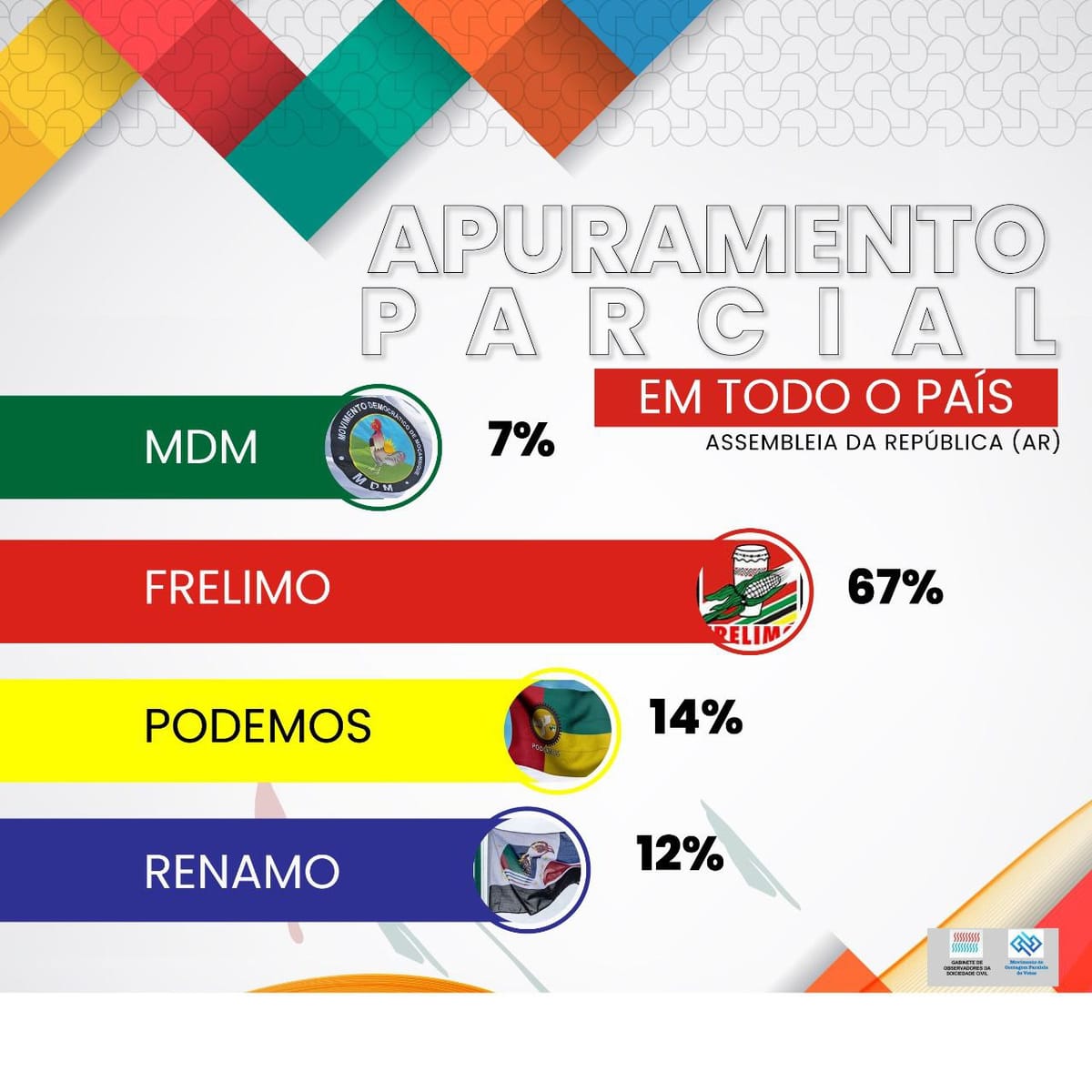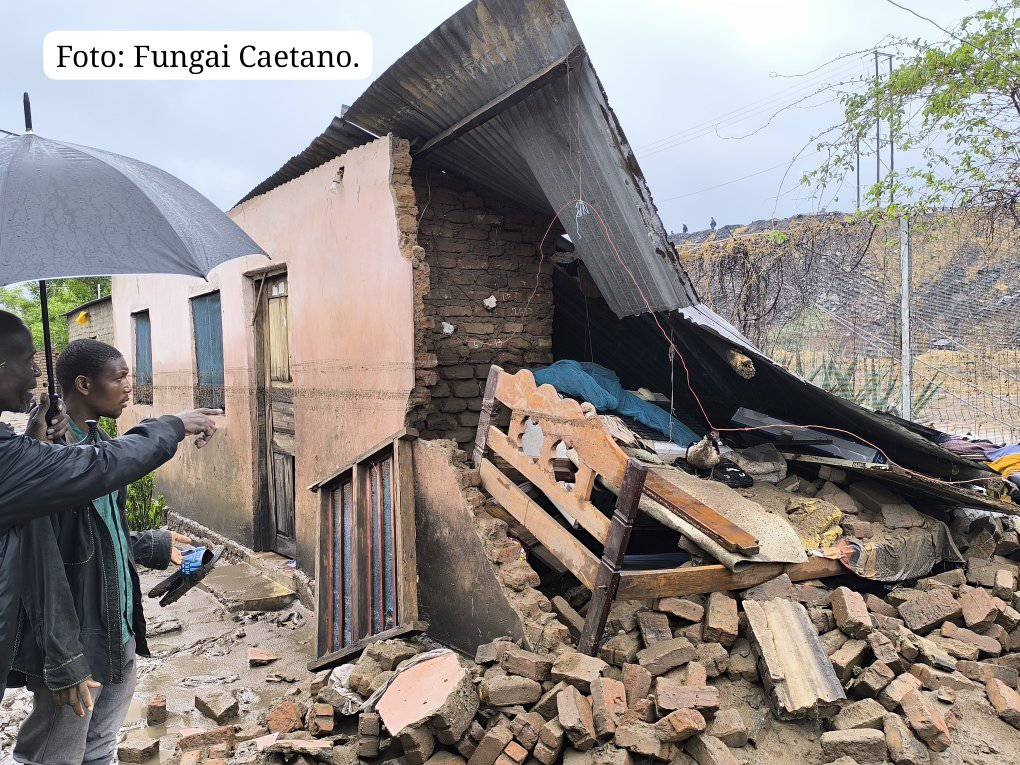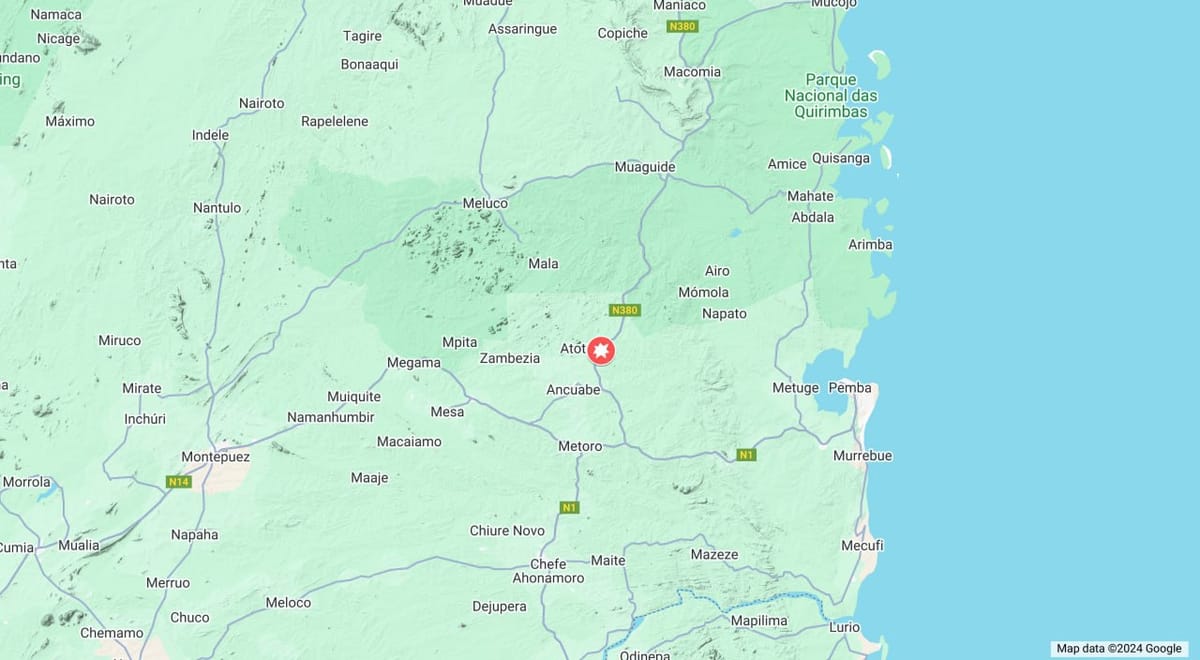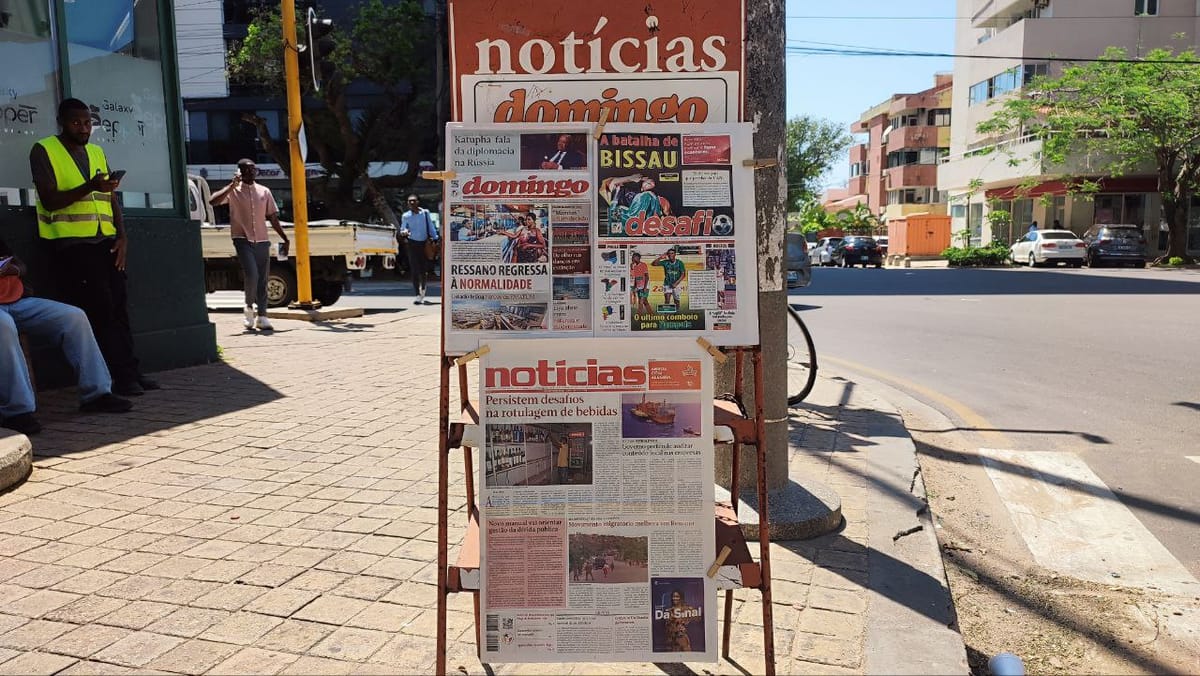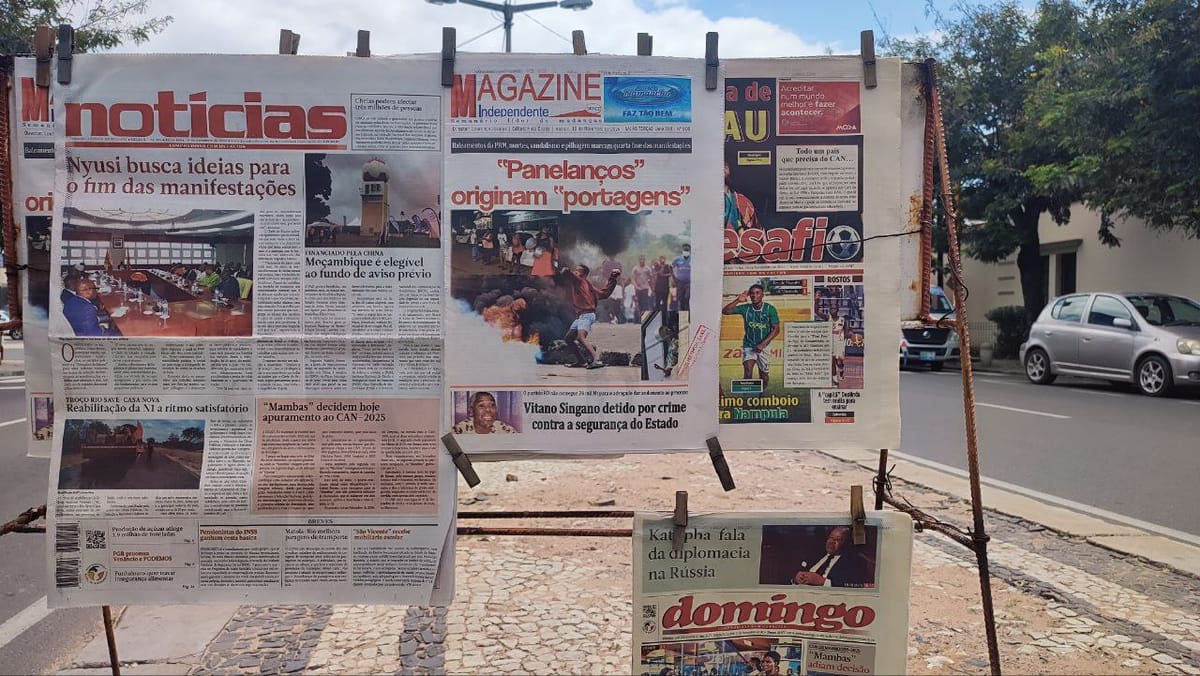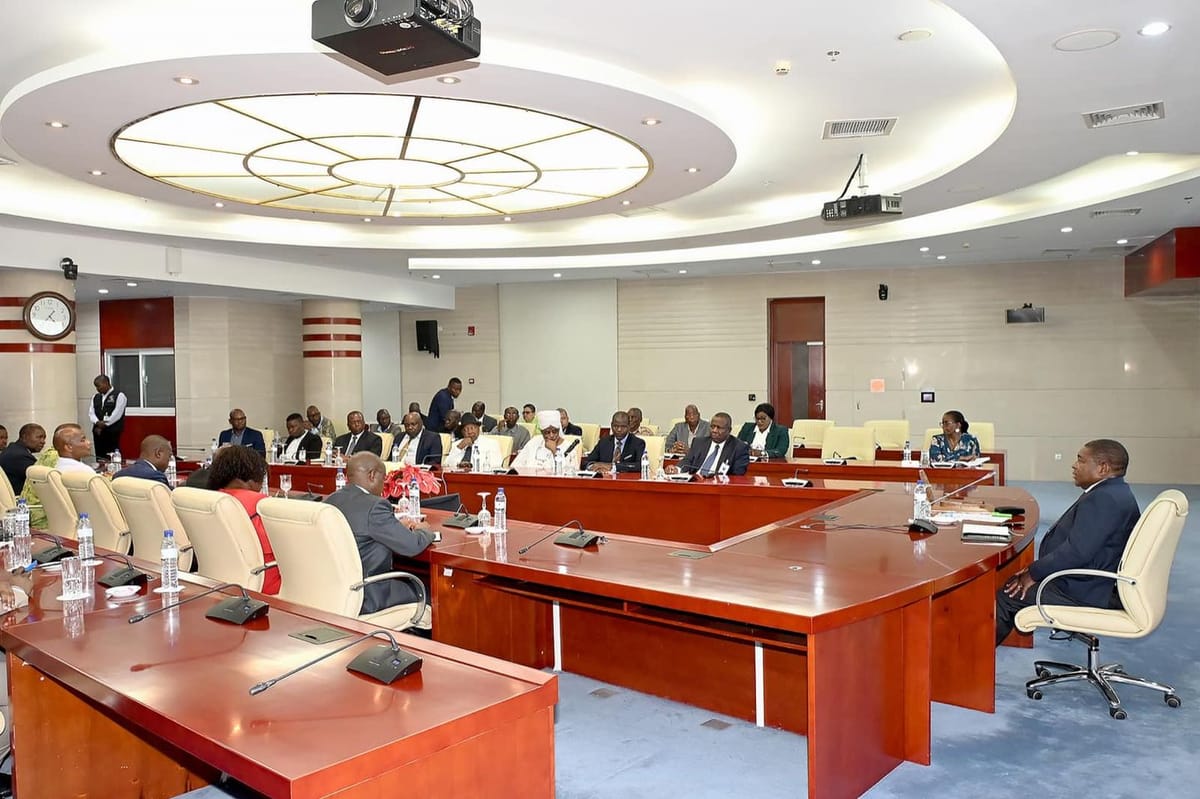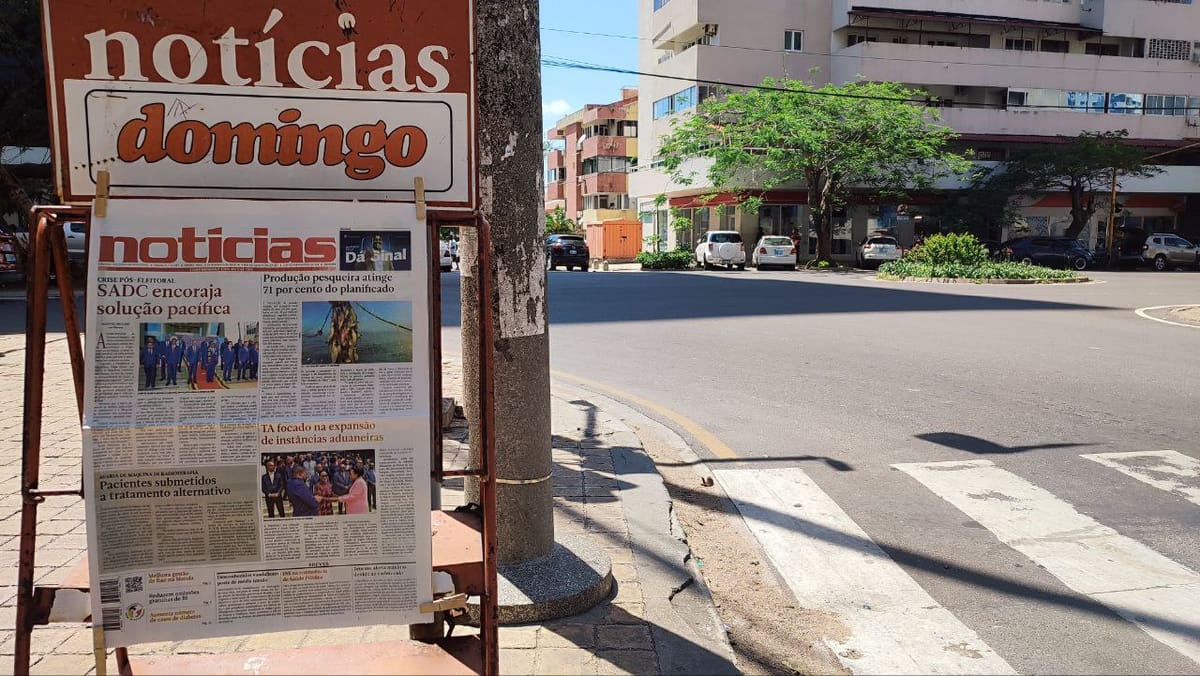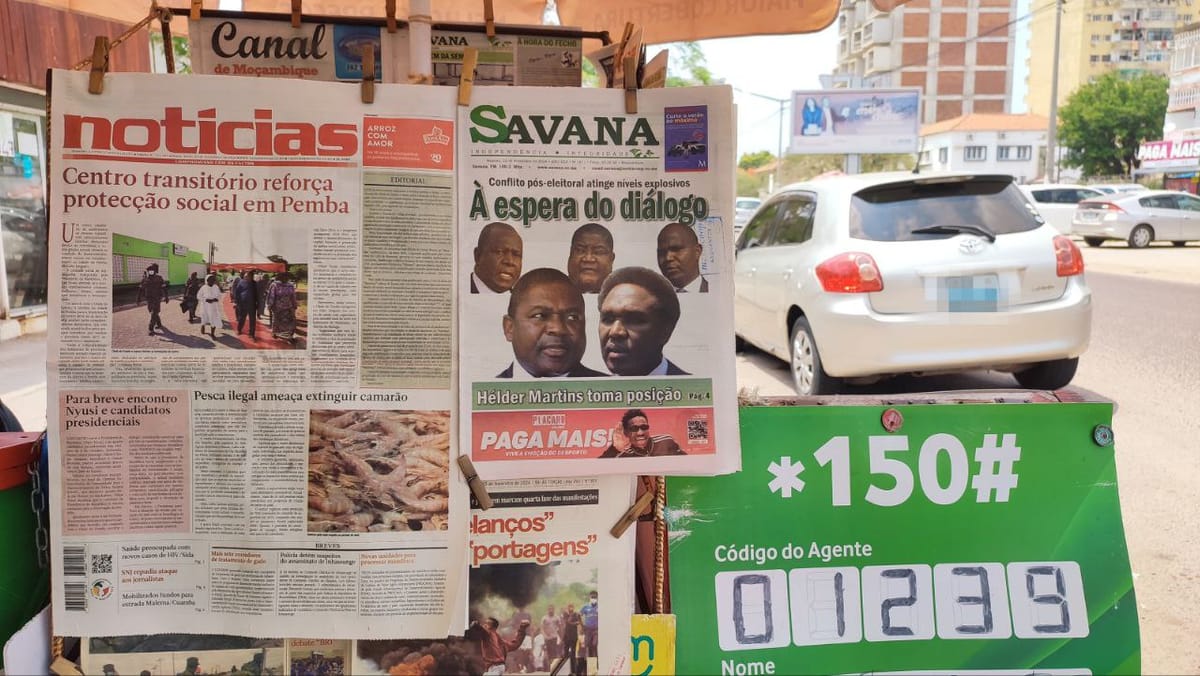Hello, and welcome to Zitamar’s free weekly round-up of the latest in Mozambique — where history is being made on a daily basis.
Venâncio Mondlane has promised a new phase of the post-election protests to start tomorrow, which will put Mozambique on the front of the world’s biggest newspapers, he says. That remains to be seen; but the protests he is orchestrating are certainly remarkable for those of us who follow Mozambique closely.
The latest phase has seen a retreat from the streets, in favour of the public making its feelings known through banging pots and pans, honking horns, standing still, and singing the national anthem.
This last is particularly powerful. Venâncio and his supporters are determined to make the point that Mozambique does not belong to Frelimo; it belongs to Mozambicans. The national anthem is now a protest song, in particular the final line: "Nenhum tirano nos irá escravizar", meaning "No tyrant will enslave us", which people have been repeating over and over on the streets of Maputo. But the trigger-happy police can’t fire tear gas at people for singing the national anthem.
Mondlane has also set out a perfectly reasonable set of demands, or ambitions, for the proposed dialogue; perfectly reasonable, yet all but impossible for Frelimo to accept.
The coming week will show whether Mondlane has outmanoeuvred Frelimo or if he will himself be outmanoeuvred; but one seemingly likely outcome is that his proposal serves to exacerbate internal divisions within Frelimo, between those in favour of a democratic Mozambique (like Hélder Martins), and those who would hang on to power at any cost.
Elsewhere in Zitamar News this week:
Away from the immediate post-election crisis, Zitamar also published this week an analysis of the partisan observer operations and think tanks that are part of Frelimo’s propaganda operation designed to persuade popular opinion that the party and its candidate Daniel Chapo had won the elections. The article is FREE TO READ:
The rainy season has started in Tete, disastrously so for some families living in Moatize who blame local coal mining operation Vulcan Resources for filling in drainage channels, causing their homes to be destroyed. The Indian company has now apparently admitted responsibility, providing temporary accommodation and also food for those affected.
And in Cabo Delgado, two gruesome incidents in the district of Ancuabe, close to the provincial capital of Pemba, seem to be heralding another southward incursion by the insurgents. Expect more updates on this in the coming week.
The Week in Review
Monday
The bad behaviour of a minority of protesters has now become the stuff of national debate. Mia Couto, the renowned novelist, who weighed in with a newspaper column calling on the bar association, the Ordem dos Advogados de Moçambique (OAM), to call on the demonstrators to stop impeding people from going about their daily business, alongside their calls for human rights to be upheld, which is what OAM has been focusing on up to now.
In an apparent response today, the OAM issued a statement condemning the charging of money to pass through barricades, and vandalism. But Couto has received harsh criticism from elsewhere, for apparently amplifying what Frelimo wants the focus to be on: the misbehaviour of the demonstrators.
That misbehaviour has now also become the focus of erstwhile independent television stations, which have apparently been enlisted to besmirch the demonstrators.
But, as we noted at the end of last week, the violent actors who are getting out of control are the state security apparatus — and their death toll is rising.
Tuesday
It has been over three months since Rwandan and Mozambican security forces launched their joint offensive against Islamic State-backed insurgents in Cabo Delgado province’s Macomia district. When it began, hopes were high that the offensive could pacify Macomia in a matter of weeks. Those hopes have faded away. The offensive is dragging on, and there is no sign that victory is getting closer.
The district town of Macomia may have been secured, along with the coastline, but control of the countryside in one of Cabo Delgado’s bigger districts remains uncertain. In particular, the insurgents are holding on to their stronghold in the Catupa forest. Government claims that the administrative posts of Mucojo and Quiterajo have been secured do not match up with reports of insurgent activity there, and satellite images showed widespread fires across Quiterajo yesterday.
Wednesday
There are some signs behind the scenes that the machinery of state may not necessarily support Frelimo’s claim of victory. Today’s edition of newspaper Canal de Moçambique reports that the Constitutional Council, the court whose job it is to confirm the official election results, is divided on what to do. The court has followed Frelimo’s wishes in the past, but it is not clear at the moment what the message from Frelimo is. President Lucia Ribeiro is against cancelling the election results and wants to award victory to Frelimo, Canal says, but some judges are opposed to her alleged plan of rewriting the election results to give a few more seats to the opposition as a consolation prize. There is no deadline for the council to issue its decision.
Meanwhile, Mondlane, who insists that he won the presidential election, has de-escalated the situation by calling for three days of mourning for people who died in the protests. The move will reduce the risk of further deaths this week, and it is likely to be a calculated tactic to help maintain his support base, since some people have begun to tire of the violence. It might even help to lead to negotiations with the government. But that remains a distant prospect, with several obstacles in the way.
Thursday
Who among the political parties wants to take up President Filipe Nyusi on his offer of a meeting to discuss solutions to the current political crisis over the disputed election results? The party that claims it won the election, Podemos, does not want one, although its presidential candidate Venâncio Mondlane has agreed to talks, subject to conditions. Renamo, up to now the biggest opposition party in parliament, does not want one either. And Frelimo, the ruling party which stands accused of stealing the election, is probably not interested, despite the fact that Nyusi is its president.
But in the end, and despite all the reasons to be cynical — we do not know for sure if Nyusi's offer of a meeting is in good faith — a meeting between the parties may be the most realistic way towards a real solution and political change.
Friday
Yesterday’s edition of newssheet Canalmoz led with a report on what it calls the “Chapo plan”, a Frelimo operation to discredit the opposition, persuade people (especially young people) not to protest and endorse the official election results that say that Frelimo won. The families of people who died during the protests are to be visited, and the pro-Frelimo message is to be spread through churches. Mass marches all over the country are planned. In the meantime, senior figures in Frelimo are obviously being put forward to appear on TV to endorse the party’s position.
This campaign may not change that many minds, especially not among people who have come to hate Frelimo. But as well as convincing the open-minded, it is also clearly intended as a show of force, to demonstrate that Frelimo is alive and well and that the opposition does not have a monopoly on mobilising large numbers of people to take to the streets.
And all this, of course, is with the objective of making sure that the fraud-ridden election results, which said that Frelimo had won the presidential and parliamentary elections, are upheld and Daniel Chapo is duly inaugurated as president of Mozambique in January. In that case, the proposed meeting next week between President Nyusi and opposition leaders to discuss a way out of the political crisis may not achieve much.

